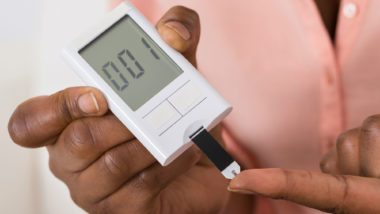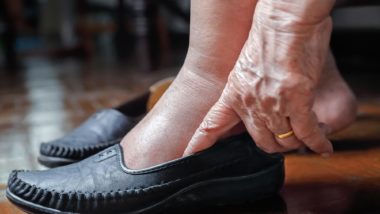Top Class Actions’s website and social media posts use affiliate links. If you make a purchase using such links, we may receive a commission, but it will not result in any additional charges to you. Please review our Affiliate Link Disclosure for more information.

According to WebMD, patients with certain preexisting conditions such as peripheral artery disease (PAD), foot ulceration, or history of previous diabetic amputation are in more danger from this increased risk factor should one be prescribed.
SGLT2 inhibitor diabetes medications include dapagliflozin (Farxiga) and empagliflozin (Jardiance). These drugs are members of a newer class of medication designed to treat type-2 diabetes rather than type-1 (juvenile onset) diabetes.
These diabetes medications work to control blood sugar levels by encouraging the kidneys to eliminate extra glucose through the body’s urine output. The kidneys would ordinarily respond to excess sugar by sending it back into the bloodstream to metabolize.
Because these diabetes drugs work through kidney stimulation, a patient taking one of these drugs may feel the urge to urinate more frequently. These frequent trips to the bathroom need to be met with an equal amount of water intake to avoid a dangerous state of dehydration. If the patient fails to heed this precaution, an already existing circulatory issue in the lower extremities—known to be a side effect of diabetes—can become even worse due to a lowered blood volume.
Diabetes Drug Risks
As WebMD indicates, it was first noted by the U.S. Food and Drug Administration in 2017 that canagliflozin—available as Invokana and Invokamet—was linked to an uptick in risk of leg and foot amputation. The FDA issued a safety warning at that time. The connection was discovered through two large clinical trials.
At the time, clinical trials had not reported a similar conclusion regarding dapagliflozin and empagliflozin (Farxiga and Jardiance).
But different results were reported in a more recent observational study, however, in which about 98 percent of the persons studied were taking either dapagliflozin or empagliflozin. An increased amputation risk profile picture emerged for these two diabetes medications.
According to Helio, the observational study analyzed the medical records of 17, 213 patients in Denmark and Sweden. The functioning of the SGLT2 inhibitors were compared against GLP-1 receptor agonists—a different class of medications. Researchers involved in this study uncovered data pointing to a doubling of amputation risk and ketoacidosis risk in SGLT2 patients compared to others who took GLP-1 receptor agonists.
What is Ketoacidosis?
Diabetic ketoacidosis
is rarely seen in patients with type-2 diabetes—under normal circumstances. This observational study, however, found a doubled risk factor for amputation and ketoacidosis in the assessed group, who were type-2 diabetics.
Ketoacidosis is a dangerous physical condition where the metabolism of fat causes acidic substances called ketones to accumulate in the blood.
Ketoacidosis can lead to a coma and eventual death unless medical treatment is sought in a timely fashion. Symptoms of ketoacidosis include but aren’t limited to nausea and vomiting, fatigue, extreme thirst, and frequent urination.
If you or a loved one experienced diabetes amputation after taking Jardiance or Farxiga, you may have a legal claim and may be eligible to seek compensation from the drug maker for your medical and other expenses. Fill out the form on this page now to see if you qualify!
ATTORNEY ADVERTISING
Top Class Actions is a Proud Member of the American Bar Association
LEGAL INFORMATION IS NOT LEGAL ADVICE
Top Class Actions Legal Statement
©2008 – 2024 Top Class Actions® LLC
Various Trademarks held by their respective owners
This website is not intended for viewing or usage by European Union citizens.
Get Help – It’s Free
Join a Free Jardiance, Farxiga Diabetes Amputation Class Action Lawsuit Investigation
If you qualify, an attorney will contact you to discuss the details of your potential case at no charge to you.
If you took Invokana or Invokamet, you do not qualify for this investigation. Click here to join a separate class action lawsuit investigation.
PLEASE NOTE: If you want to participate in this investigation, it is imperative that you reply to the law firm if they call or email you. Failing to do so may result in you not getting signed up as a client or getting you dropped as a client.
E-mail any problems with this form to:
Questions@TopClassActions.com.
Oops! We could not locate your form.












